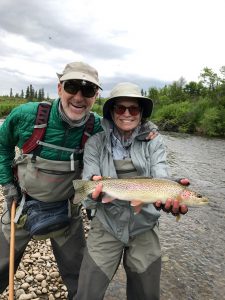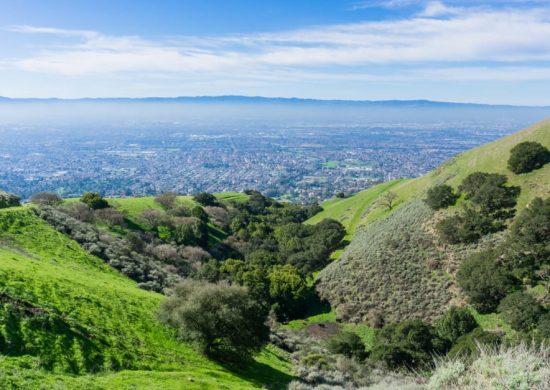Water impacts each of us in the full dimension of our lives—as individuals who depend on it for sustenance and who may like to swim or fish, in our work occupations, and as members of our communities interested in the welfare of our families and neighbors. Water is not just personal, however. Where it is, and where it is not—and how that dynamic is changing—is one of the keys to our connected and collective future.
Despite water’s importance to each and all of us, as a society we have not invested in the solutions that will enable us as a nation to keep up with the challenges water resources face today—population growth, aging infrastructure, loss of natural vegetation, pollution from farm fields and from cities, all made more challenging by climate change. That is why when we started the Pisces Foundation, the question we wrestled with was not whether to make water one of our focus areas. Rather, the question was: given its importance and complexity, how do we best tackle it?
As a water advocate before I took the reins at the Pisces Foundation, I saw first-hand an evolution in the water community, one that is still emerging but gaining momentum. Where water management once focused narrowly on each aspect of water—its quality, for example, separate from its quantity—the best approaches today manage it holistically with interventions that drive broader and more equitable benefits. The transformation brewing today reminds me of the wisdom in the great conservationist John Muir’s observation: “When we try to pick out anything by itself, we find it hitched to everything else in the Universe.”
The most important action we can take today to ensure safe and sufficient water across the country is to advance these integrated, more powerful approaches to water management, moving them from the periphery to the center of policy and investment. This is what the Pisces Foundation’s Water Program is focused on: catalyzing a shift away from a system that manages water quality and water supply in isolation toward “smart water”—new integrated and innovative approaches that foster more resilient communities, healthier rivers, streams, and lakes, and a stronger economy.
Take U.S cities, where eighty percent of us live, and where the Pisces Foundation is making investments across the country. For a century or more, U.S. cities, like Los Angeles, managed freshwater and wastewater needs as if they were disconnected, missing huge opportunities. For example, as the rainy season begins in California, Los Angeles will discharge billions of gallons of contaminated storm water out to sea. Meanwhile, it imports enormous quantities of freshwater, creating negative impacts throughout the West. But now the Los Angeles region is developing plans to green cityscapes so that stormwater seeps into the ground instead of running off into the ocean. If implemented at scale, this effort could improve drought preparedness, reduce pollution and upstream environmental impacts, and create a source of water sufficient to supply a large portion of its annual needs.
What can work in Los Angeles do to improve urban water management across the U.S.? The heartbreaking images from Houston, Florida, and Puerto Rico in the aftermath of a trio of hurricanes provide harsh reminders that too much water can have deadly consequences. After Hurricane Katrina, New Orleans decided to commit fully to becoming one of the most climate resilient cities in the U.S. Instead of fighting nature, New Orleans is using some of the same green infrastructure approaches Los Angeles is experimenting with to replenish natural groundwater in ways that reduce pollution and slow the rate at which the ground beneath the city is subsiding.
Smart water approaches are not just for cities. When used systematically on agricultural lands, integrated management conservation practices like use of cover crops, precision irrigation tools, reduced tillage, manure management, and perennial cropping can reduce polluted runoff, make farms more drought-resilient, reduce water demand, sequester carbon, and often increase yield or otherwise add revenue to a farm as well. While the rate of adoption by crop and practice varies, these practices are used on less than 20% of row crops in some areas of the country. As producers learn more about the benefits of conservation practices, interest is growing. We’re supporting efforts to make these advanced approaches commonplace.
Everyone has a stake in solving our long-standing water challenges. We will get better and fairer results if we’re all heard and are connected to each other. That’s why we support using technology to put state-of-the-art science in the hands of everyday citizens. Those technologies can be as sophisticated as using satellites to track the source of dangerous algal blooms across the Great Lakes. They can also be as simple as using smart phones to report pollution incidents in a local creek. Given the right tools, any of us can mobilize restoration where we live.
Our water program is also making investments in networks that connect the professionals tasked with stewarding water management across the U.S. We see increasing interest in learning opportunities, like the One Water Summit, where more than 650 participants from 168 cities recently gathered in New Orleans. Building a “network of networks” to connect those already practicing, or seeking to learn about, smart water is a key part of our strategy to bring better solutions to more communities.
Randi & Bob Fisher, Pisces Foundation trustees, enjoying the clean and plentiful water at Katmai National Park and Preserve in Alaska. (3)
With my colleague Nancy Stoner’s leadership, at the Pisces Foundation we see our task as helping to spotlight and support new approaches, tools, and technologies like these, taking design inspiration from Muir’s insight. This is the best way to achieve goals we all share: safe water coming from every tap, farms that grow food without polluting waterways, cities strengthened by cleaner lakes and rivers, and enough water for both people and nature.
___________________
(1) Photo credit: Shutterstock
(2) Photo credit: 100 Resilient Cities
(3) Photo credit: Randi & Bob Fisher






